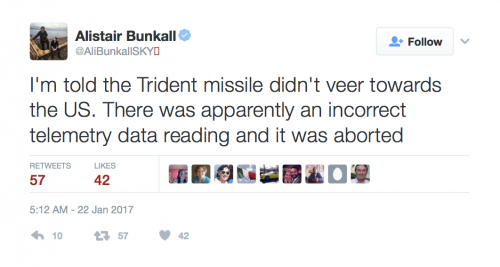- Joined
- 21 January 2015
- Messages
- 11,573
- Reaction score
- 14,838
Widely reported in the U.K. media and not denied by our MOD.
http://www.bbc.co.uk/news/uk-38708823
The Sunday Times says an unarmed Trident missile fired from submarine HMS Vengeance near the Florida coast in June veered off course towards the US.
The paper says the incident took place weeks before a crucial Commons vote on the future of Trident.
The MoD did not give details of the test process but said it was a success.
In July, MPs backed the renewal of Trident by 472 votes to 117, approving the manufacture of four replacement submarines at a current estimated cost of £31bn.
According to the Sunday Times, it is expected that Defence Secretary Michael Fallon will be called to the Commons to answer questions from MPs.
Vengeance, one of the UK's four Vanguard-class submarines, returned to sea for trials in December 2015 after a £350m refit, which included the installation of new missile launch equipment and upgraded computer systems.
The Sunday Times says the cause of the test firing failure remains top secret but quotes a senior naval source as saying the missile suffered an in-flight malfunction after launching out of the water.
The Trident II D5 missile, adds the paper, was intended to be fired 5,600 miles (9,012 km) to a sea target off the west coast of Africa.
http://www.bbc.co.uk/news/uk-38708823

